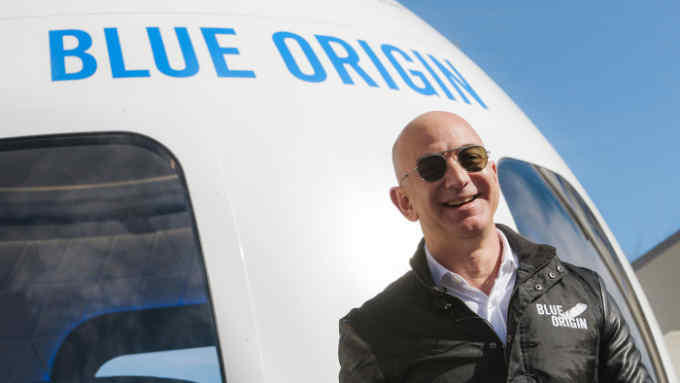US and Luxembourg frame laws for new space race

Roula Khalaf, Editor of the FT, selects her favourite stories in this weekly newsletter.
The moon rocks collected by the Apollo missions more than 40 years ago were brought back to Earth without much controversy. Several are on display in the Smithsonian National Air and Space Museum in Washington.
Had they been gathered now, they would probably have provoked much more debate. Over recent decades, moon rocks have come to symbolise something altogether different: space mining and a potential multibillion dollar market.
For years, companies investing in technology to extract water, precious rocks and metals in space have operated in a regulatory grey zone under the aegis of a treaty written in the cold war, which makes no mention of property rights.
But when former US president Barack Obama fired the starting gun on regulatory changes in 2015, by guaranteeing private companies rights to own, sell and profit from resources extracted from asteroids and other “celestial bodies”, other countries scrambled to follow suit.
In August, Luxembourg became the first European country that officially allows space resources to be “appropriated” by commercial groups based in the country. Deputy prime minister Etienne Schneider, who signed the law, says the idea was to attract a lucrative new space industry away from the US.
“Luxembourg has always been a country that has tried to reinvent its own future,” he says. “We want to be the frontrunner for this economy.”

The grand duchy has put money into its plan. In March last year it awarded US group Planetary Resources a grant of €25m through Société Nationale de Crédit et d’Investissement, its state-owned bank, says Crunchbase, a site that tracks start-up investments. A few months later Luxembourg signed an agreement with Deep Space Industries, another US start-up, to jointly fund its first spacecraft. Both companies have since set up offices in the country.
“I went to the government and said we’d need a first envelope of €200m to show companies that we are serious,” says Mr Schneider. “My budget now is nearly unlimited.”
More than 60 space start-ups have knocked on his door asking to set up shop in Luxembourg, he adds. He hopes they will bring private investment into the nation of fewer than 600,000 people — space start-ups have, globally, attracted $13.3bn of investment since 2010, says Goldman Sachs.
Luxembourg’s idea is to spur investment by removing regulatory uncertainty. The 1967 UN Outer Space Treaty, which governs space exploration and has been ratified by more than 100 countries, does not expressly condone or forbid mining.
Written to prevent a space race between the former Soviet Union and the US, it says only “the exploration and use of outer space, including the moon and other celestial bodies, shall be carried out for the benefit and in the interests of all countries, irrespective of their degree of economic or scientific development, and shall be the province of all mankind.”
The UN’s Office for Outer Space Affairs says countries are far from updating the treaty. There is “no consensus among state parties,” says Unoosa director Simonetta Di Pippo.
The UN has given no reason to believe it would speak out against space mining projects but for companies investing in space technology, the US and Luxembourg regulations are reassuring.
Planetary Resources says: “US and Luxembourg laws provide certainty for our industry and for our investors and allow us to focus our efforts on technology and mission development.”
Much is at stake. If companies can legally extract resources on asteroids or the moon, they could search for water sources and possibly establish cities in outer space. Another option would be to transport precious commodities to Earth. Goldman Sachs analysts say this could, for instance, “crater the global price of platinum”.
Barry Kellman, law professor at De-Paul University, Chicago, says regulations are not the limitation so much as the costs of extracting resources and transporting them: “How you bring a ship full of rocks back to Earth and do it very safely, that’s the major challenge.”
Jacob Haqq-Misra, research scientist at the Blue Marble Space Institute of Science, Seattle, however, senses change in the air. “The Luxembourg and US laws show that we’re in a different era,” he says.
“If there’s going to be a space race now it won’t be political. It’ll be economic.”
Letter in response to this article:
Commercial interests are even muscling in on the use of outer space / From Dr Philip De Man, Senior Researcher, Belgium

Comments